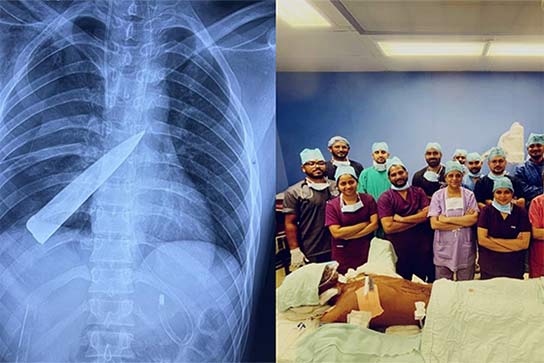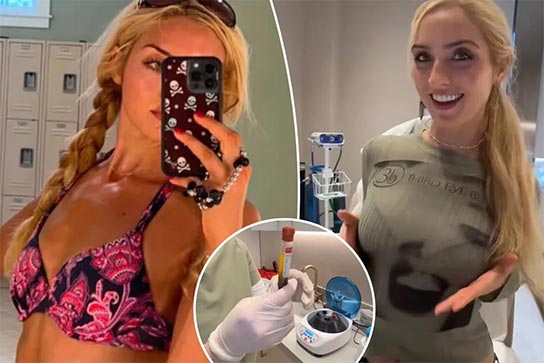When we talk about honey then one thing that strikes our mind is a sweet, viscous food substance made by honey bees but what would be your reaction if you find that the honey you are using as an immunity booster is an adulterated product. Well, your fear might turn true as according to an investigation by the Centre of Science and Environment, highly recognized honey products are failed in the quality check survey.
The report by CSE was released on December 2, which was the result of a four-month-long investigation conducted across laboratory studies in India and Germany. All the leading honey brands failed in the NMR test which includes Dabur, Patanjali, Baidyanath, Zandu, Hitkari, and Apis Himalaya.
As per the CSE, food research report, samples of these brands were first tested at the Centre for Analysis and Learning in Livestock and Food (CALF) at National Dairy Development Board (NDDB) in Gujarat. Almost all the top brands (except Apis Himalaya) passed the tests of purity, while a few smaller brands failed the tests to detect C4 sugar - call it basic adulteration using cane sugar.
But when the same brands were tested using Nuclear Magnetic Resonance (NMR) - laboratory tests currently being used globally to check for such modified sugar syrups - almost all big and small brands failed. Out of the 13 brands tests, only three passed the NMR test, which was done by a specialised laboratory in Germany.
Amongst the big brands, Dabur, Patanjali, Apis-Himalaya, Baidyanath, Zandu and Hitkari are claimed to have failed the NMR tests, while Patanjali, Baidyanath and Hitkari also failed to pass the trace marker test for rice syrup (TMR), another test to judge the purity of honey which is not part of FSSAI's standards for Indian honey. Apis-Himalaya, meanwhile, failed to clear some of the Indian tests too. Other brands like Dadav, Indigenous, Hi Honey and Societe Naturelle also failed the NMR tests with Dadav and Hi Honey failing the basic Indian tests too.
The three brands out of the 13 which cleared all tests, including NMR, were Saffola, Markfed Sohna and Nature's Nectar (one sample).
"What we found was shocking. It shows how the business of adulteration has evolved so that it can pass the stipulated tests in India. Our concern is not just that the honey we eat is adulterated, but that this adulteration is difficult to catch. In fact, we have found that the sugar syrups are designed so that they can go undetected," said Amit Khurana, programme director of CSE's Food Safety and Toxins team, said.
"It is a food fraud more nefarious and more sophisticated than what we found in our 2003 and 2006 investigations into soft drinks; more damaging to our health than perhaps anything that we have found till now - keeping in mind the fact that we are still fighting a killer Covid-19 pandemic with our back to the wall. This overuse of sugar in our diet will make it worse," said CSE director general Sunita Narain on Wednesday, releasing the study which was conducted over four months.
As part of the investigation, CSE traced a factory in Jaspur, Uttarakhand that manufactured a sugar syrup to adulterate honey - all pass honey, as the product is locally known - and found that when mixed with honey that CSE's team sourced from apiaries, was able to pass Food Safety and Standards Authority of India (FSSAI) tests for honey purity.
The latest iteration of a draft law came into effect this July but gives companies until next year to be fully compliant. Adulteration also destroyed the livelihoods of bee-keepers who found it unprofitable to make pure honey because sugar-syrup honey was often available at half the price.
Brands named in the study were quick to dispute the CSE's claims. A Dabur India spokesperson said, "The report seems motivated and aimed at maligning our brand. Dabur does not import honey or syrup from China. Our honey is sourced entirely from Indian beekeepers. Dabur also complies with the 22 parameters mandated by the FSSAI. We are also the only company in the country to have NMR testing equipment in our own laboratory to check for adulteration."
Patanjali Ayurved's MD Acharya Balkrishna said that the CSE report seemed to be a marketing ploy to promote German technology. "We make 100 per cent natural honey which has been tested on standards laid down by the FSSAI. Ayurveda has been recommending natural honey for ages to boost immunity. The study seems to be an attempt to mark down Indian honey and promote German technology," he said.
A spokesperson for Emami said the company was a responsible organisation, complying with all standards. "Zandu Pure Honey conforms and adheres to all the protocols and quality norms laid down by the Government of India and its authorised entities such as the FSSAI," the spokesperson said.













